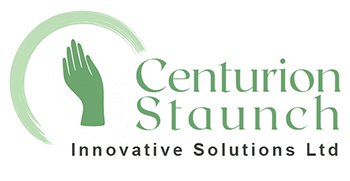Recruiting sponsored staff in the UK involves navigating a complex landscape of Home Office regulations and HR compliance requirements. The visa sponsorship rules updated in July 2025 have introduced significant changes, impacting how employers recruit and manage foreign workers. This blog provides a detailed guide to HR and Home Office compliance for recruiting sponsored staff, focusing on the implications of the new visa regulations effective from July 2025. It outlines sponsor licence responsibilities, compliance best practices, and strategies to adapt to the tightened immigration framework. For expert consultation on these matters, contact Centurion Staunch.
Understanding UK Visa Sponsorship for Employers
To hire foreign nationals, UK employers must comply with the Home Office’s visa sponsorship system, primarily through the Skilled Worker visa route, though other options like Global Business Mobility and Scale-up visas may apply. Compliance hinges on holding a valid Sponsor Licence and fulfilling associated duties..
Key Sponsorship Requirements
Sponsor Licence: Employers must obtain a Sponsor Licence, demonstrating they are a legitimate business with robust HR systems to manage sponsorship obligations.
Certificate of Sponsorship (CoS): A unique electronic reference issued to the worker for their visa application.
Job Suitability: Roles must meet specific skill and salary thresholds, typically at Regulated Qualifications Framework (RQF) level 6 (graduate level) from July 2025, unless listed on the Immigration Salary List (ISL) or Temporary Shortage List (TSL).
Compliance Duties: Employers must monitor sponsored workers, maintain accurate records, and report changes via the Sponsorship Management System (SMS).


New Visa Regulations After July 2025
The July 2025 immigration reforms aim to reduce net migration, prioritize domestic recruitment, and strengthen compliance. Below are the key changes affecting HR and recruitment:
1. Elevated Skill and Salary Thresholds for Skilled Worker Visas
From July 22, 2025, most jobs eligible for sponsorship under the Skilled Worker visa must be at RQF level 6, excluding approximately 111 mid-skill occupations (RQF 3–5) like hospitality supervisors unless listed on the ISL or TSL. Salary thresholds have increased:
General Threshold (Option A): £41,700 annually, with a minimum hourly rate of £17.13 (based on a 48-hour week).
PhD-Relevant Roles (Option B): Minimum salary of £37,500.
STEM PhD, New Entrants, or ISL Roles (Options C–E): Minimum salary of £33,400.
Health and Care Roles (Options F–J): Minimum salary of £31,300, with lower thresholds for PhD holders, new entrants, or ISL roles (£25,000–£28,200).
Care Workers (SOC 6135/6136): Minimum salary of £25,000 or £12.82 per hour for in-country switching only.
Impact: HR teams must ensure job roles meet RQF level 6 or are on the ISL/TSL, conducting salary reviews to align with higher thresholds.
2. Closure of Care Worker Route to New Overseas Recruits
Effective July 22, 2025, the Health and Care Worker visa route for care workers and senior care workers (SOC 6135/6136) is closed to new overseas applicants. In-country switching is allowed until July 22, 2028, for workers employed on the sponsor’s UK payroll for at least three months.
Impact: HR teams in the care sector must focus on recruiting in-country workers and document efforts to hire domestically, as required from April 9, 2025.
3. Introduction of Temporary Shortage and Immigration Salary Lists
Two interim lists, effective until December 31, 2026, allow sponsorship for select sub-graduate roles:
Immigration Salary List (ISL): Covers shortage occupations like laboratory technicians and bricklayers, with a minimum salary of £25,000 for RQF 3–5 roles.
Temporary Shortage List (TSL): Includes roles like IT support technicians and logistics managers, with a CoS assignment deadline of December 31, 2026.
Workers in these roles cannot bring dependents, and salary discounts are discontinued.
Impact: HR must verify eligibility on ISL/TSL and shift recruitment to domestic talent for non-listed roles.
4. Enhanced Compliance and Auditing
The Home Office is intensifying Skilled Worker visa audits in 2025 to enforce sponsorship duties. Non-compliance risks licence downgrading, suspension, or revocation, with a 24-month cooling-off period for multiple revocations.
Impact: HR teams need robust compliance systems to manage increased scrutiny and avoid penalties.
5. Additional Changes
Global Business Mobility and Scale-up Visas: Higher salary thresholds apply (e.g., £52,500 for Senior or Specialist Workers, £39,100 for Scale-up Workers).
Dependants Restrictions: New workers in RQF 3–5 roles on ISL/TSL cannot bring dependants.
English Language Requirements: Skilled workers require B2-level proficiency (up from B1), and dependents need A1-level standards.
HR Compliance Best Practices for Sponsored Staff
To ensure compliance with Home Office requirements and the new regulations, HR teams should implement the following practices:
1. Documented Compliance Processes
Create clear, documented procedures for recruitment, onboarding, and management of sponsored staff. Define roles for HR, recruitment, and management to ensure consistency.
2. Robust Record-Keeping
Maintain accurate records, including:
Immigration documents (passports, visas, CoS).
Right-to-work check records.
Contact details and employment status updates.
Visa expiration dates with automated renewal alerts.
Use secure, centralized systems and conduct regular audits.
3. Staff Training
Train HR, recruitment, and line managers on immigration laws and sponsorship duties. Schedule regular sessions to cover updates like the July 2025 changes.
4. Right-to-Work Checks
Perform thorough right-to-work checks before employment, following Home Office guidelines. Verify documents for all employees to avoid discrimination and train staff to recognize valid immigration documents.
5. Migrant Worker Monitoring
Monitor sponsored workers’ visa conditions, including:
Tracking visa expirations and initiating renewals.
Reporting changes (e.g., job role, salary, absences of 10+ days) within 10 working days via the SMS.
Ensuring compliance with CoS-specified roles.
6. Reporting Mechanisms
Implement timely reporting procedures for:
Changes in job roles, salaries, or locations.
Worker absences or termination.
Business changes (e.g., mergers) within 20 working days.
Use internal channels to streamline communication.
7. Internal Audits
Conduct regular internal audits to identify compliance gaps. Involve cross-functional teams to review HR processes and sponsorship duties, using findings to improve practices.
8. Updated Contact Information
Maintain accurate Home Office contact details, designating primary and backup contacts for timely communication. Update changes via the SMS.
9. Home Office Engagement
Respond promptly to Home Office requests and seek professional advice from immigration specialists like Centurion Staunch when needed. Cooperate fully during compliance visits.
10. Sponsorship Duty Compliance
Meet all sponsorship duties, including:
Providing accurate information to the Home Office.
Cooperating with compliance officers.
Staying updated on immigration law changes.
Impact of New Visa Regulations on HR and Recruitment
The July 2025 regulations pose several challenges and opportunities for HR teams:
Recruitment Challenges
Limited Role Eligibility: The shift to RQF level 6 roles reduces the pool of sponsorable positions, requiring a focus on ISL/TSL roles or domestic recruitment.
Care Sector Restrictions: The closure of the care worker route to new overseas recruits increases competition for in-country talent and necessitates strong local hiring efforts.
Higher Salary Costs: Elevated salary thresholds may strain budgets, particularly for smaller organizations, requiring justification for higher salaries or exemptions.
Compliance Risks
Increased Audits: Heightened Home Office scrutiny demands robust compliance systems to avoid penalties like licence revocation.
Dependant Restrictions: Restrictions on dependants for RQF 3–5 roles may deter candidates, complicating recruitment.
Language Requirements: Higher English proficiency standards increase screening and training costs.

Strategic Workforce Planning
Domestic Recruitment: The focus on UK workers requires HR to develop strategies to train and hire domestically.
Temporary Lists: The ISL and TSL offer temporary relief, but their 2026 expiration demands long-term planning.
High-Skill Opportunities: Expanded Global Talent and High Potential Individual visas enable recruitment of top-tier talent in sectors like AI and fintech.
Preparing for Home Office Compliance Visits
Home Office compliance visits are critical to verify sponsorship obligations. To prepare:
Organize Documentation: Keep records (e.g., right-to-work checks, CoS details) accessible and up-to-date.
Train Staff: Prepare teams to answer compliance officers’ questions and provide documents promptly.
Conduct Mock Audits: Simulate inspections to identify and address gaps.
Cooperate Fully: Demonstrate cooperation during visits to maintain compliance status.
Non-compliance risks severe consequences, including licence suspension or revocation.
If you’re the sole owner and applicant, it can trigger conflict of interest concerns, increasing the risk of refusal.
Conclusion
Recruiting sponsored staff in the UK post-July 2025 requires meticulous HR and Home Office compliance to navigate the tightened visa regulations. By adopting robust compliance processes, maintaining accurate records, and training staff on the new rules, employers can mitigate risks and recruit effectively. The shift to higher skill and salary thresholds, closure of the care worker route, and increased audits underscore the need for strategic planning. For expert guidance, contact Centurion Staunch to ensure compliance and streamline your sponsorship processes.









